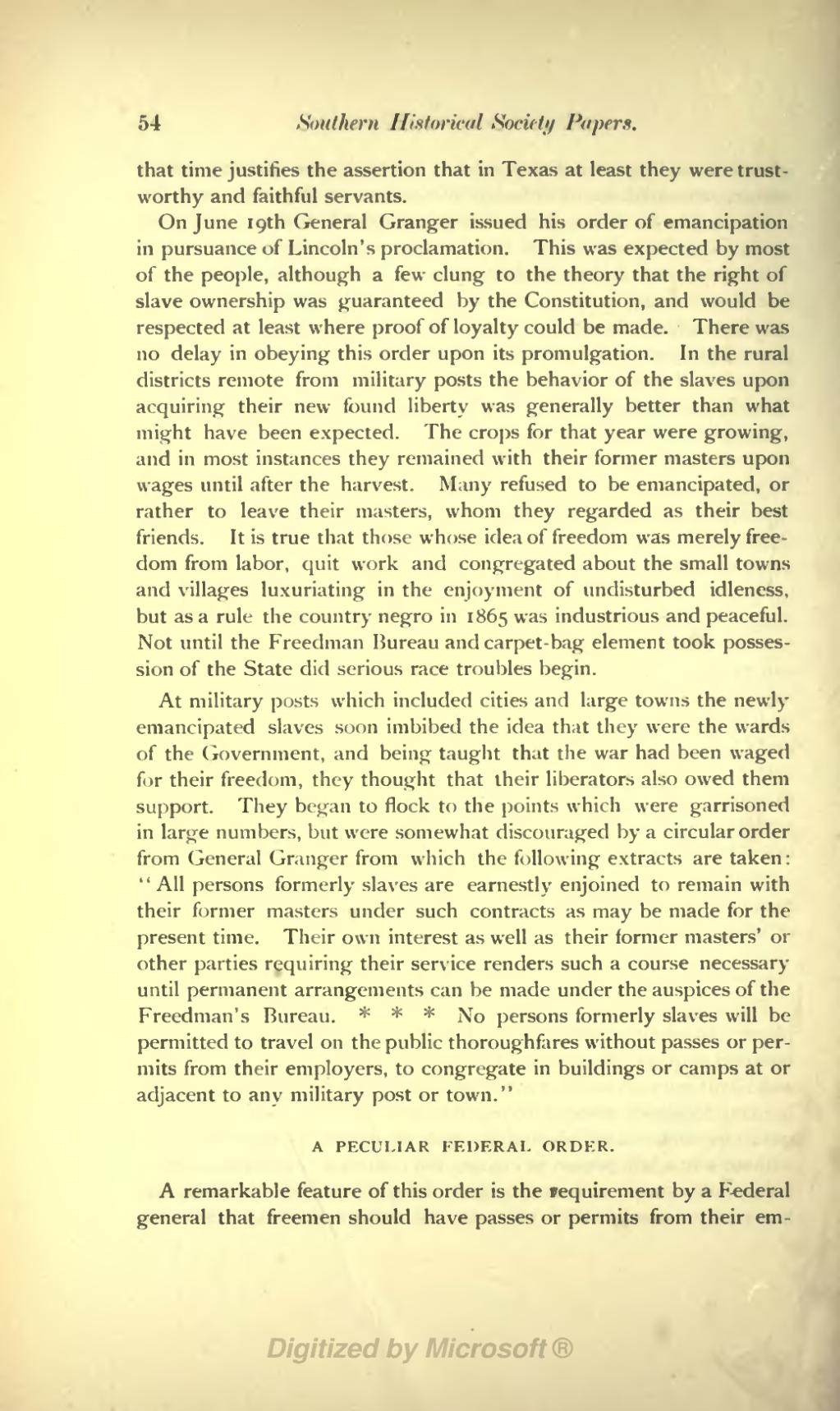that time justifies the assertion that in Texas at least they were trust- worthy and faithful servants.
On June rgth General Granger issued his order of emancipation in pursuance of Lincoln's proclamation. This was expected by most of the people, although a few clung to the theory that the right of slave ownership was guaranteed by the Constitution, and would be respected at least where proof of loyalty could be made. There was no delay in obeying this order upon its promulgation. In the rural districts remote from military posts the behavior of the slaves upon acquiring their new found liberty was generally better than what might have been expected. The crops for that year were growing, and in most instances they remained with their former masters upon wages until after the harvest. Many refused to be emancipated, or rather to leave their masters, whom they regarded as their best friends. It is true that those whose idea of freedom was merely free- dom from labor, quit work and congregated about the small towns and villages luxuriating in the enjoyment of undisturbed idleness, but as a rule the country negro in 1865 was industrious and peaceful. Not until the Freedman Bureau and carpet-bag element took posses- sion of the State did serious race troubles begin.
At military posts which included cities and large towns the newly emancipated slaves soon imbibed the idea that they were the wards of the Government, and being taught that the war had been waged for their freedom, they thought that their liberators also owed them support. They began to flock to the points which were garrisoned in large numbers, but were somewhat discouraged by a circular order from General Granger from which the following extracts are taken : " All persons formerly slaves are earnestly enjoined to remain with their former masters under such contracts as may be made for the present time. Their own interest as well as their former masters' or other parties requiring their service renders such a course necessary until permanent arrangements can be made under the auspices of the Freedman' s Bureau. * * * No persons formerly slaves will be permitted to travel on the public thoroughfares without passes or per- mits from their employers, to congregate in buildings or camps at or adjacent to any military post or town."
A PECULIAR FEDERAL ORDER.
A remarkable feature of this order is the requirement by a Federal general that freemen should have passes or permits from their em-
